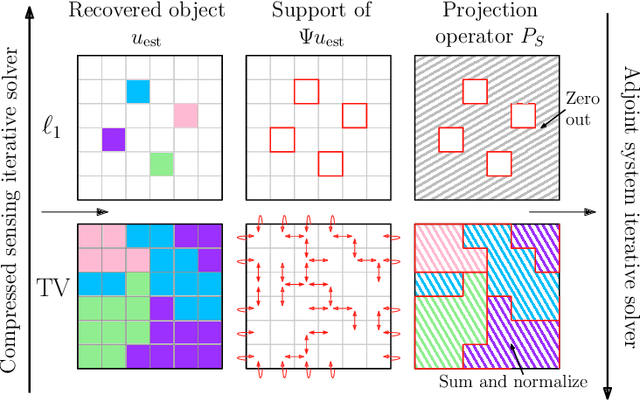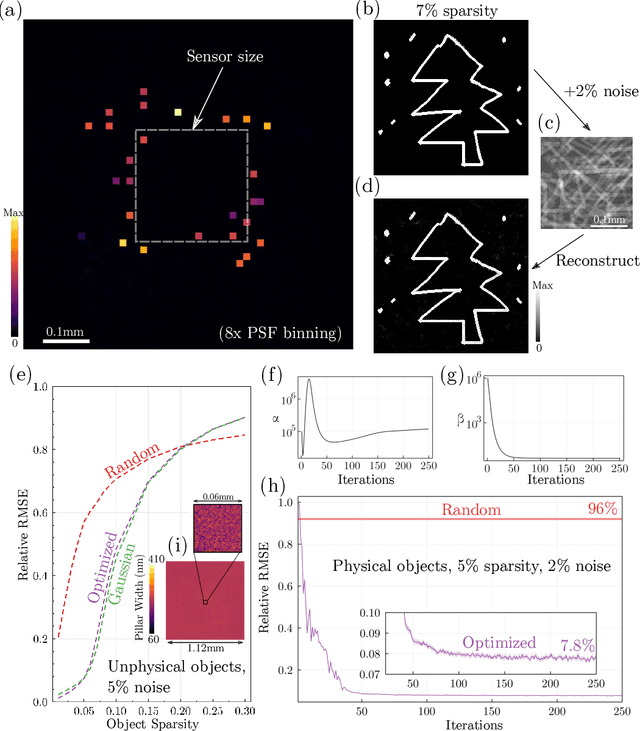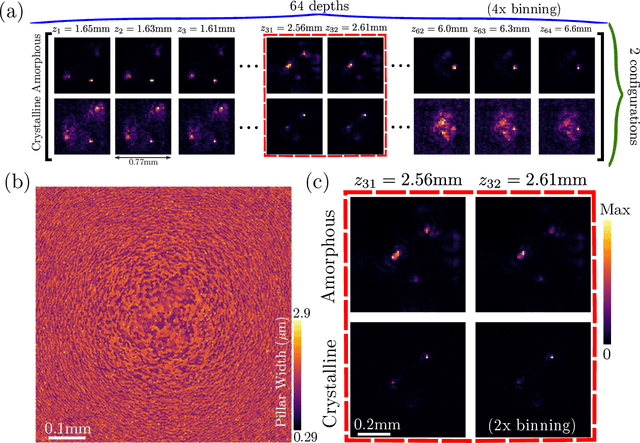William F. Li
Transcending shift-invariance in the paraxial regime via end-to-end inverse design of freeform nanophotonics
Feb 03, 2023Abstract:Traditional optical elements and conventional metasurfaces obey shift-invariance in the paraxial regime. For imaging systems obeying paraxial shift-invariance, a small shift in input angle causes a corresponding shift in the sensor image. Shift-invariance has deep implications for the design and functionality of optical devices, such as the necessity of free space between components (as in compound objectives made of several curved surfaces). We present a method for nanophotonic inverse design of compact imaging systems whose resolution is not constrained by paraxial shift-invariance. Our method is end-to-end, in that it integrates density-based full-Maxwell topology optimization with a fully iterative elastic-net reconstruction algorithm. By the design of nanophotonic structures that scatter light in a non-shift-invariant manner, our optimized nanophotonic imaging system overcomes the limitations of paraxial shift-invariance, achieving accurate, noise-robust image reconstruction beyond shift-invariant resolution.
End-to-End Optimization of Metasurfaces for Imaging with Compressed Sensing
Jan 28, 2022



Abstract:We present a method for the end-to-end optimization of computational imaging systems that reconstruct targets using compressed sensing. Using an adjoint analysis of the Karush-Kuhn-Tucker conditions, we incorporate a fully iterative compressed sensing algorithm that solves an $\ell_1$-regularized minimization problem, nested within the end-to-end optimization pipeline. We apply this method to jointly optimize the optical and computational parameters of metasurface-based imaging systems for underdetermined recovery problems. This allows us to investigate the interplay of nanoscale optics with the design goals of compressed sensing imaging systems. Our optimized metasurface imaging systems are robust to noise, significantly improving over random scattering surfaces and approaching the ideal compressed sensing performance of a Gaussian matrix.
 Add to Chrome
Add to Chrome Add to Firefox
Add to Firefox Add to Edge
Add to Edge